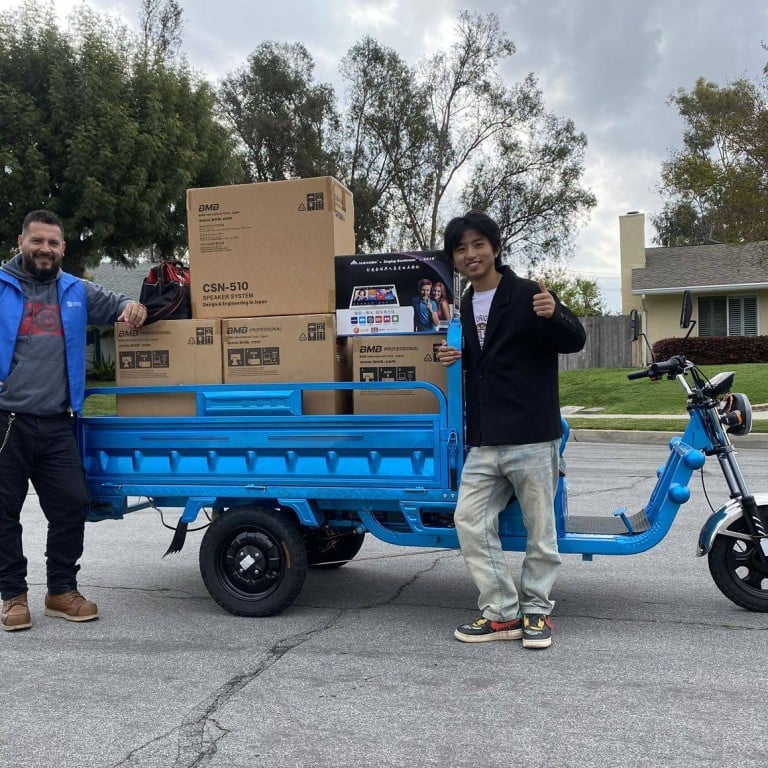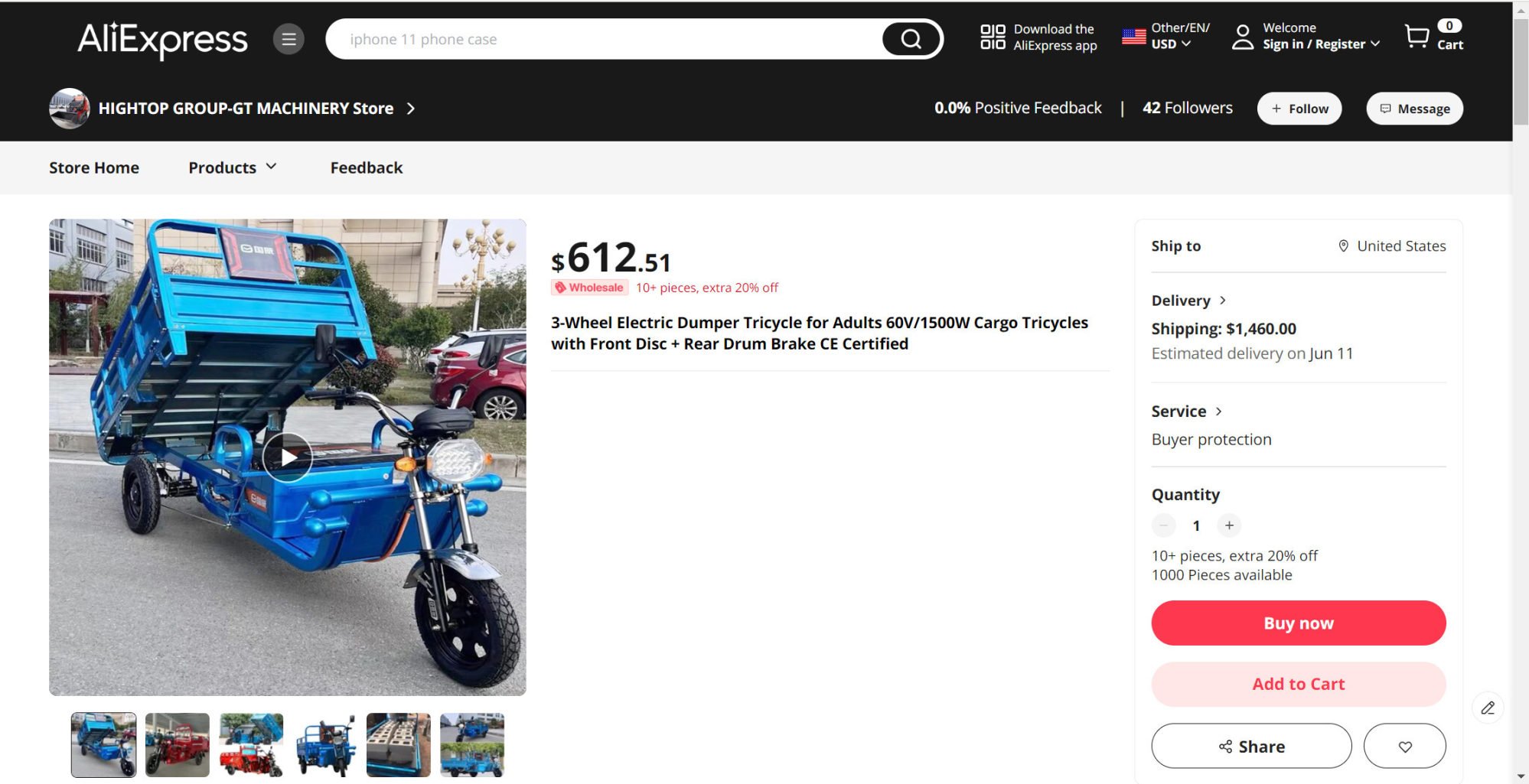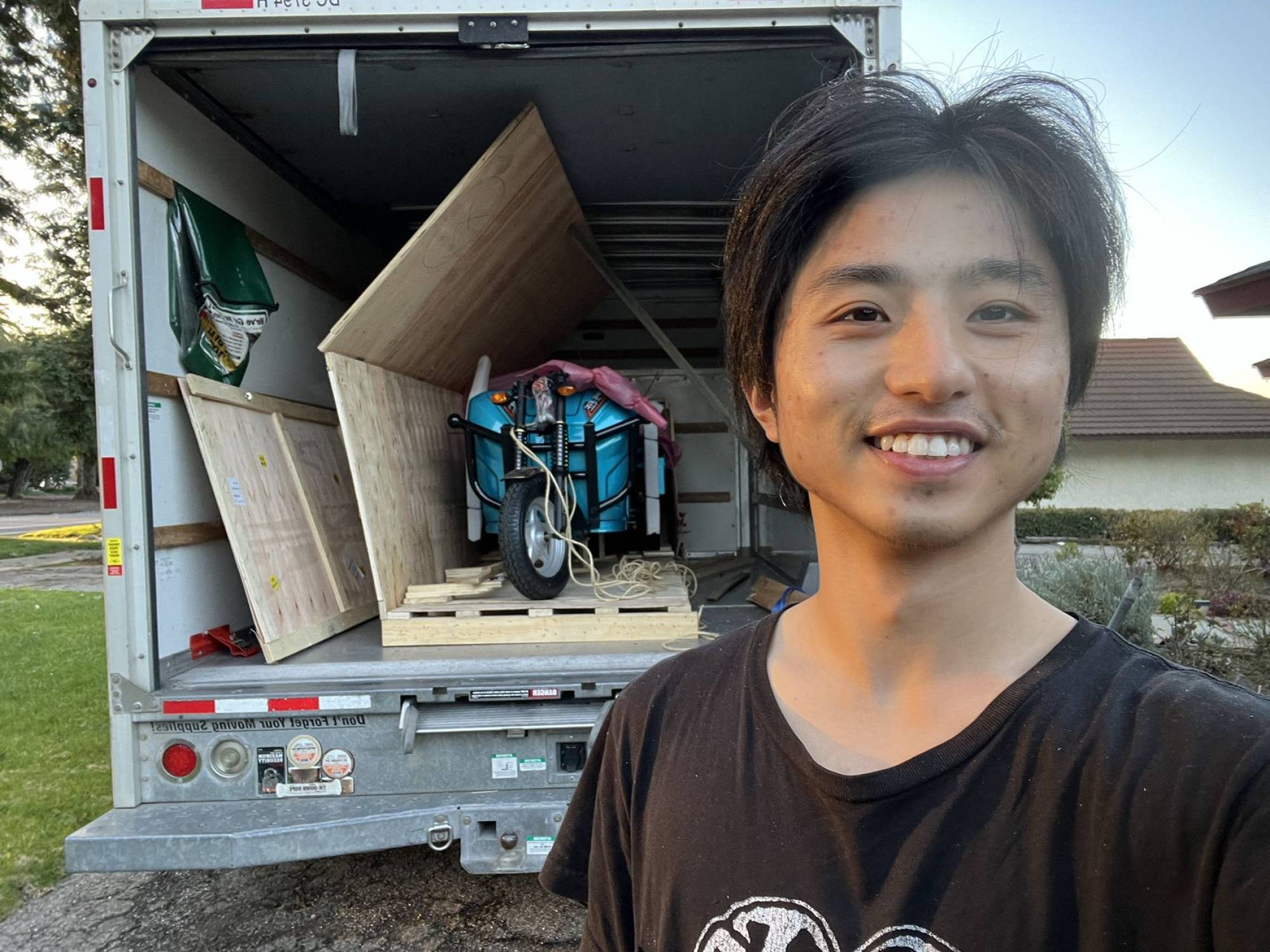
China’s electric ‘beng bengs’ create a sensation in US. Now about those delivery charges …
- The electric version of the motorised cargo tricycle, long used in China, has drawn interest in the United States after a social media account showed one in Michigan
- The vehicles, which cost as little as US$600, became a business opportunity for Chinese entrepreneurs and logistics companies in the past few months
Bad news for Americans worried about the viability of domestic auto production: the super-cheap Chinese electric vehicles that Elon Musk and Donald Trump fear are already rolling on US soil.
The good news is that these vehicles only have three wheels.
Comprising a motorcycle-like front with handlebars and a lightweight pickup rear, the “beng beng” – as the diesel vehicle is sometimes referred to in China because of its characteristically rough ride behind a loud engine that spews gas fumes – has served as a workhorse in China’s agricultural redoubts for many decades.
The newer, fully electric versions have the same moniker even though they offer smoother and quieter rides, ideal for flexible short-distance cargo transport.
Most importantly, they can now be bought in the US for as little as US$600 – before shipping fees. More about that later.
As Yellen slams China’s EV overcapacity, minister calls such claims ‘groundless’
Not seen in the US before this year, these vehicles suddenly became a novel business opportunity for Chinese entrepreneurs and logistics companies just in the past few months, with small numbers starting to arrive at American container ports – one after another – in large wooden crates.
It all started with videos from a vlogger called Bobo in the USA, who is originally from Beijing and now lives with her family in Dearborn, Michigan – coincidentally, the hometown of Henry Ford.
She gave a tricycle to her American father-in-law for Christmas, and it quickly became a local sensation. Able to carry a load up to 700kg (1,543 pounds), the beng beng can be charged simply by plugging into a standard 110 voltage outlet; once fully charged, it can run as far as 60km (37 miles). While in reverse, a high-pitched female voice warns in Chinese: “Qing zhuyi, daoche” (“Attention, backing up”).

When the family got it legally registered as a motorcycle and rode it on local streets, many neighbours snapped photos and asked where they could buy one.
As Bobo’s videos were going viral on Chinese social media platforms in mid-January, Luo Hao, 25, who comes from Guizhou province and now lives in New York City, called a friend. Within an hour, they decided to launch a business: buying electric tricycles from China and selling them in the US.
After they placed their order with a Chinese manufacturer in January, the first batch of two dozen electric beng bengs travelled across the Pacific and arrived at the Port of Los Angeles on March 1. That day, Luo’s sales revenue reached US$10,000; he sold out his supply within three weeks.
However, for each vehicle Luo sells in the US, freight costs can easily double or triple the original price. On e-commerce platform AliExpress, a three-wheeled electric tricycle delivered from Shandong, China costs US$612.51, but shipping fees to the US are US$1,460.

“Everything is very cheap before it arrives in the US. Once the tricycle arrives, we may also need to rent a truck to deliver it to the buyer in another state, and that further adds a few more hundred dollars to the total costs,” Luo said.
Due to the high costs, Luo said his first entrepreneurial attempt did not generate a profit – but he didn’t lose money either. And his venture has drawn many others to follow suit after he posted about it on social media.
Shenzhen Topda Logistics is one of the first freight forwarding companies to get involved in the business, and it primarily takes individual orders directly from overseas clients.
They usually place the order on an e-commerce platform such as Taobao; the vehicle is sent to a designated warehouse in China, then Topda is responsible for shipping the vehicle to the client’s final destination. Taobao and AliExpress are operated by the Alibaba Group, which also owns the South China Morning Post.
Li Auto says cheapest model yet to launch next week, will ‘bring you happiness’
So far, though, the shipping volume has been minimal compared to Topda’s other business segments, according to a manager at the company who only gave his last name as Zou.
“It seems that the idea only became popular on Chinese social media, as all the buyers were Chinese living overseas,” Zou said, doubting the sustainability of such trade.
Zou said he had received more than 1,000 inquiries from Chinese expatriates in the US, Canada and Europe so far, but most didn’t follow up after learning the price. The company only shipped around 20 vehicles in total in the past three months.
And most clients were concerned about whether they could legally register such a vehicle in their countries or states, something which he could not guarantee, Zou said.
“Even in the US, the rules for licensing vehicles are different in each state. If you can get a license plate in Los Angeles, you may not be able to get one in New York,” he said.
Moreover, the costs are still too high for shipping assembled individual vehicles in wooden crates, which prohibit exports in mass volume, Zou added.
What’s needed, he said, would be “an influx of capital” to make it possible to ship parts to the US then assemble them there. That, he noted, would help “selling in the US … become more cost-effective”.
Nevertheless, Luo’s second batch of imported tricycles are already on their way to the US. He is also considering bringing in American shareholders and shifting his major target clients from overseas Chinese to American farmers – contracting with local farm equipment shops.

Despite the high shipping costs, he believes the vehicles are still attractive for Americans, since the prices, even after including freight expenses, are still at least 10 times cheaper than pickup trucks.
“The price was so low that many of them found it unreasonable,” Luo said, referring to the American buyers he had met.
“Then the Chinese-made three-wheelers will become the first to open up the US electric vehicle market,” he joked.

